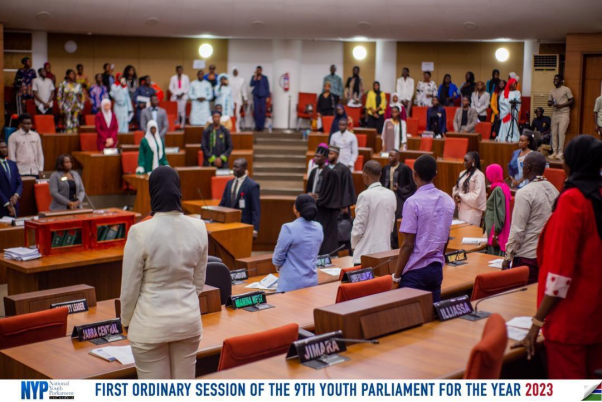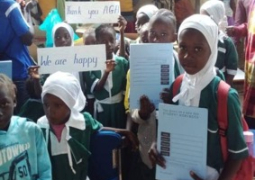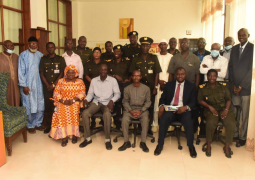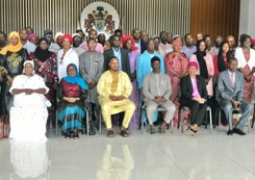
Giving his submission, Hon. Gazali Kambi, National Youth Parlimentarian for Brikama North said it is important for one to have knowledge on a particular subject matter before speaking about it. “In Islam, the issue of women circumcision or female genital mutilations is not compulsory or mandatory to be practice on any woman. We tend to spend our energy on things that have no relevance. We are religious people, we should stay by our religion and not allow anyone to influence us. We urge our National Assembly Members (NAMs) to not repeal the law thus is not a religious practice.”
Hon Alpha Yaya, Member for Lower Fulladu West said “FGM is a violation of women’s rights and therefore it is unacceptable. It is claimed that it is a Sunnah but I believe none of Prophet Muhammed’s (PBU) daughters underwent FGM. I want to believe the practice is no way Islamic. It is bad and a no go area. The issue of FGM is not a religious belief.”
Representative for Jeshwang Hon. Fatoumata Daffeh, said FGM is a cultural mindset that can be changed. “It has no good effect and this inhumane treatment should stop. FGM has no good effects.”
Hon. Abdou Bah, member for Serekunda highlighted that Islam does not support anything that harms people, claiming that the practice is harmful. “If the women that are going through FGM said it is bad then it is bad and should be stopped.”
Hon. Sarata Ceesay, member for West Coast said “if the Women’s Act is properly implemented then all these problems would have been solved.”
Hon. Essa Sanneh, member for Latri Kunda Sabiji, mover of the motion explained that Female Genital Mutilation (FGM) is widely recognised as a grave violation of human rights of girls and women, as affirmed by numerous international legal instruments. “FGM represents an extreme infringement on the rights, dignity, life, health and integrity of women and girls. It not only perpetuates gender inequality and discrimination but also poses significant risks to their physical and psychological well-being, sexual and reproductive health rights as well as access to education.
He added that despite domestic legislation in The Gambia prohibiting FGM, the practice persists. “The 2015 amendment to the Women's Act was a significant step forward in addressing FGM but substantial efforts are still required to effectively eliminate this practice. While some progress has been made over the last decade, including the promulgation of an Act against FM, it is acknowledged that more work is needed to achieve Sustainable Development Goal 5 and end FGM by 2030.”
Majority of National Assembly Members recently agreed for FGM be to repealed and vowed to ensure that the law is repealed.





